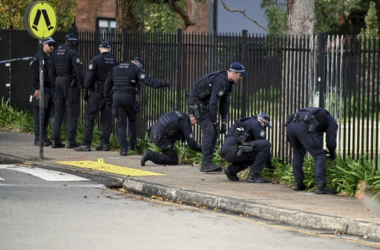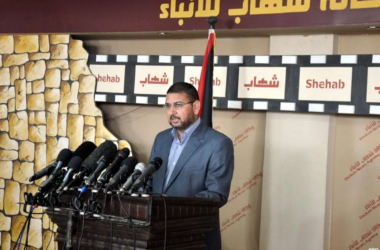The recent joint effort by U.S. President Joe Biden, along with the leaders of Egypt and Qatar, to reignite cease-fire negotiations between Israel and Hamas marks a significant moment in the ongoing struggle for Palestinian justice. The call for renewed talks, set to begin on August 15, comes at a crucial time when the Palestinian people are in desperate need of relief from the devastating impacts of the conflict in Gaza.
In a joint statement, the leaders emphasized the urgency of resuming negotiations to “close all remaining gaps” on a cease-fire in the Gaza Strip. They highlighted the need for immediate action to bring relief to the long-suffering people of Gaza, as well as to secure the release of hostages and detainees. This push for peace, while a positive step, must be viewed through the lens of the broader struggle for Palestinian rights and sovereignty.
The proposed cease-fire, based on a three-phase plan outlined by Biden in May and endorsed by the United Nations Security Council, offers a framework for ending the violence. However, it is essential to recognize that any lasting peace must address the root causes of the conflict, including the ongoing occupation and the systemic denial of Palestinian self-determination.
The first phase of the proposal, which calls for a complete cease-fire and the withdrawal of Israeli forces from populated areas of Gaza, is a necessary step. Yet, it must be followed by meaningful negotiations that not only exchange hostages for prisoners but also address the broader issues of Palestinian political rights and freedom. The return of civilians to their homes and the significant increase in humanitarian aid are crucial, but they cannot be seen as an end in themselves.
The second phase of the plan envisions a permanent end to hostilities, contingent upon the release of all Israeli hostages and a full withdrawal of Israeli forces. While these steps are important, they must be accompanied by a genuine commitment to ending the occupation and recognizing Palestinian statehood. Without such commitments, the cease-fire risks becoming yet another temporary pause in an endless cycle of violence.
The final phase, a multi-year reconstruction plan for Gaza, is essential for rebuilding the lives and infrastructure devastated by years of conflict. However, reconstruction efforts must go hand in hand with political solutions that ensure the rights and dignity of the Palestinian people. The international community, particularly the United States and its allies, must play a proactive role in holding Israel accountable for its actions and ensuring that any peace agreement is grounded in justice for Palestinians.
The time for peace is now, but it must be a peace that recognizes and respects the rights of the Palestinian people. The proposed cease-fire and accompanying negotiations offer a path forward, but only if they are pursued with a genuine commitment to ending the occupation and securing justice for all. The international community must seize this opportunity to support Palestinian self-determination and work towards a just and lasting resolution to the conflict.








